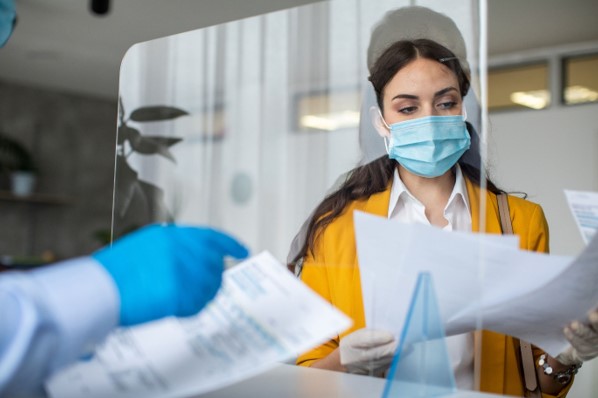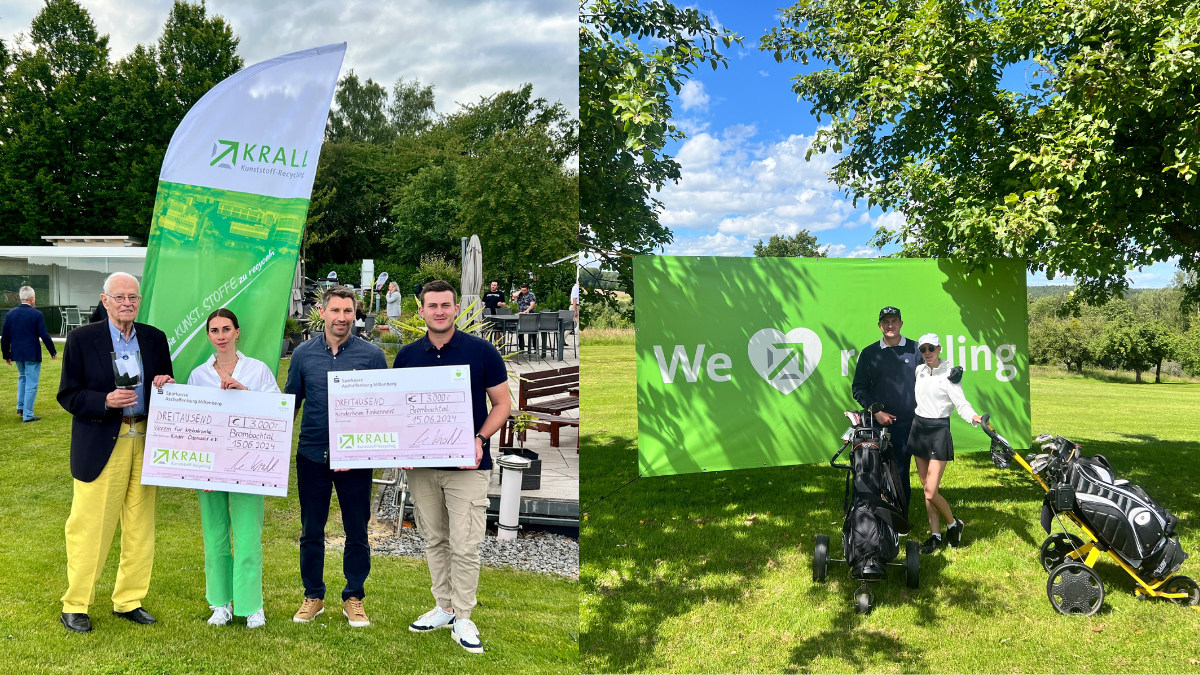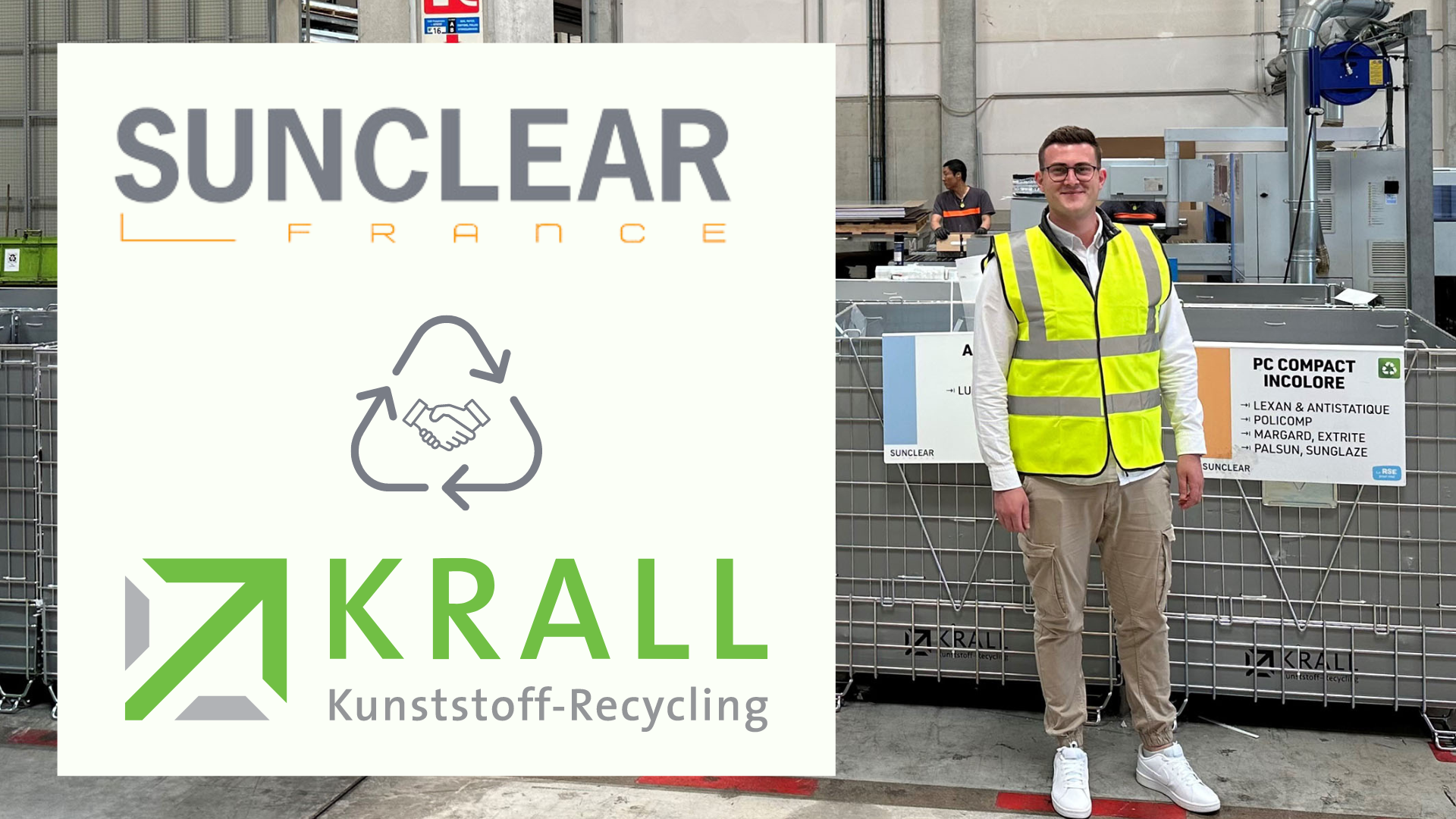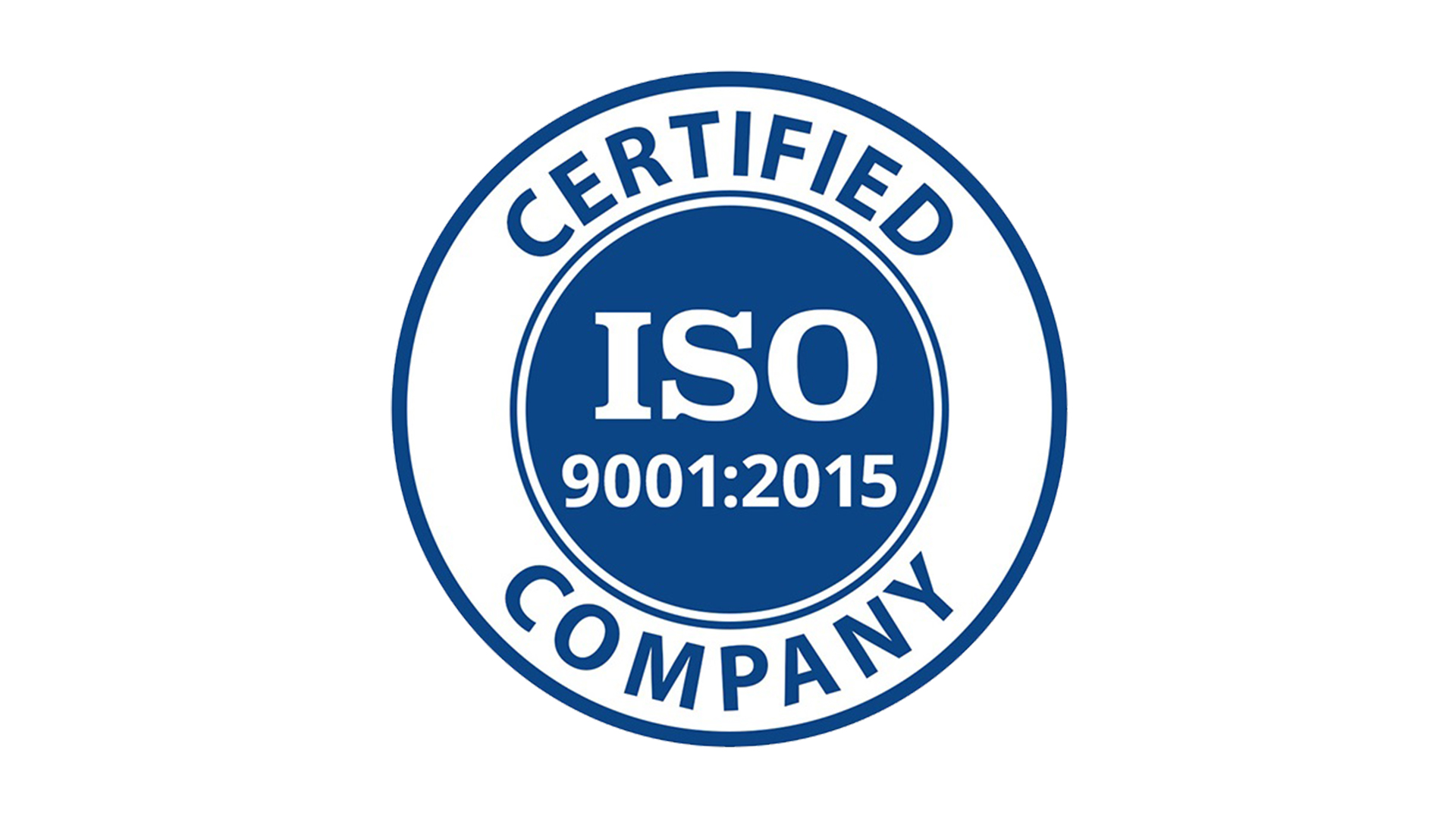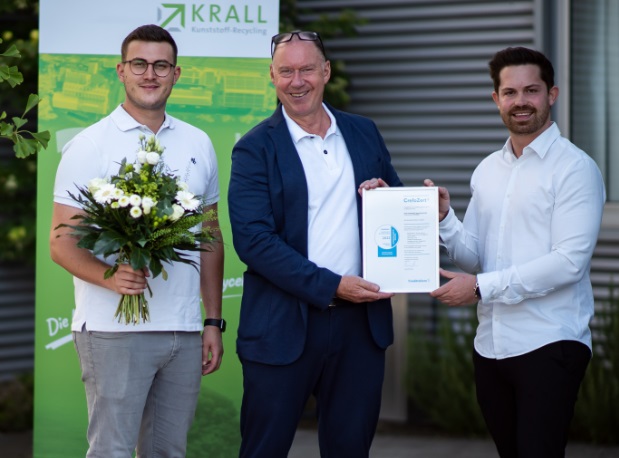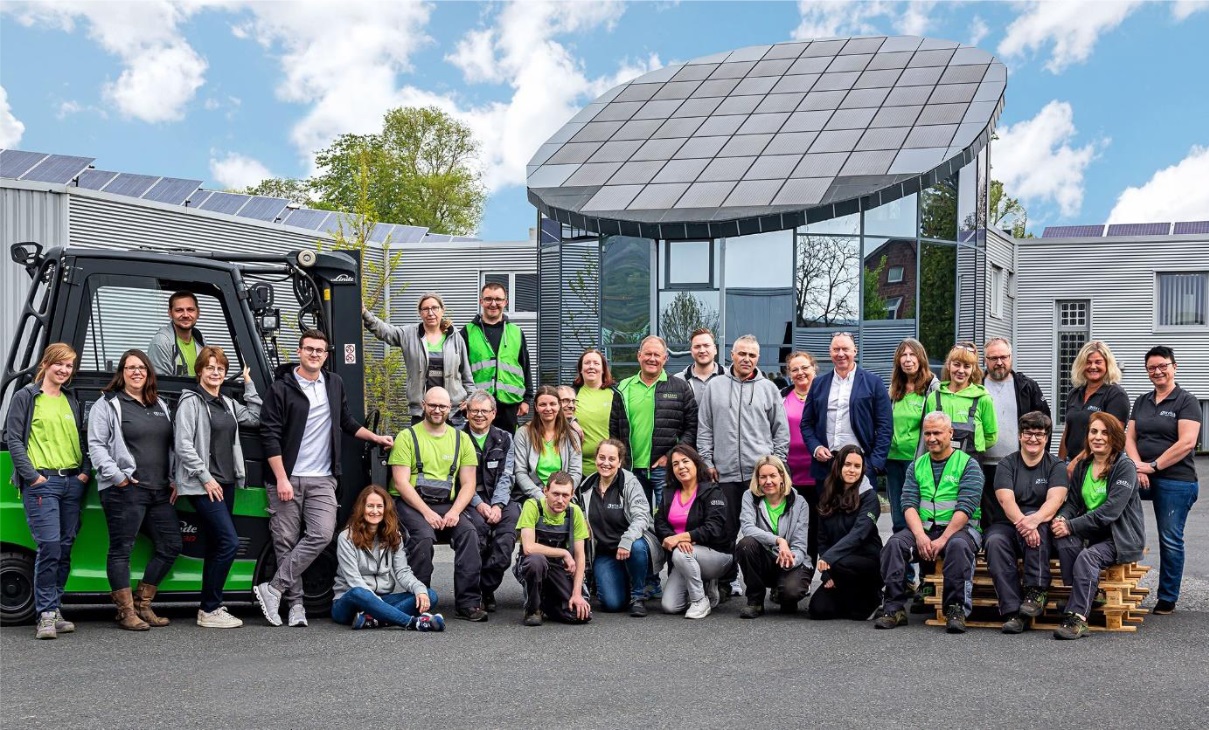Elsenfeld, March 2022 – – A great number of hygienic shields, commonly known as sneeze guards, is being used in industrial and trade facilities, as well as in the catering trade and restaurant business. Now the disposal of these highly transparent plates, which may consist of very different plastic material, is becoming an issue. Krall Kunststoff-Recycling has foresightedly prepared for a sustainable recycling. With a powerful infrastructure and state-of-the-art technology, today the company is able to accept random quantities and turn them into single-origin regrinds that are highly demanded in the plastic industry. For waste disposal companies and collecting points, this is an environmentally friendly and financially attractive alternative to the thermal utilisation of these mixed plastic scraps.
Reuse instead of Incineration
Executive director Markus Krall explains: “The sneeze guard – omnipresent due to the pandemic – presently is still a rather dormant resource for plastic recycling. We expect an increasing amount of them to incur at the recycling centres and at the classical disposal companies acting as local collection points for rubbish and industrial waste. The different, but visually very similar plastic types cannot be distinguished there, so that the plates mostly are unsorted and then have to be disposed of as residual waste with costs. By contrast, there is our offer to accept these collected goods and to return them into the raw materials cycle. We accept all common box systems up to large containers, and beyond that even offer the possibility to unload walking-floor trucks.”
As the mechanical recycling is only possible with identical plastics, Krall then performs the task firstly to sort the materials separately according to fractions and only then to grind them. “With this step, the regrind becomes attractive for reuse, as only then it can be used for the production of high-quality plastic products again, be it injection of moulded parts or extrusion of plates and profiles”, says Krall.
With Future-oriented Technology to Sorting Purity
The heterogeneity of the collected goods is due to the discrepancy between the sudden high demand for corresponding plates and the limited supply of raw materials respectively available at short term. Krall continues: “As we traditionally also dispose of the production residues of producers and processors, we know quite exactly what to expect. This will mainly be – up to about 70 % – polymethyl methacrylate (PMMA), followed by about 10 % polycarbonate (PC) as well as small amounts of PET-A and PET-G, styrene based thermoplastics like PS, SAN, or ASA, and PVC, too.
To guarantee that the finished regrind will be actually single-origin despite these unfavourable conditions, Krall made a future-oriented investment. The company is just starting up a new system especially configured for its demands to safely distinguish and separate even very similar plastic materials. This enables the recycler to offer regrinds with nearly virgin material processing quality. This exceeds by far the common sorting by colours, which the company keeps on doing as a standard feature and also offers as a service.
Krall Kunststoff-Recycling GmbH is a family-owned, certified recycling company centrally located in the Rhine-Main area. Since the early 1990s, the company has been reusing nearly all types of plastic waste from production processes in sorted or mixed form. Another focus is CD recycling. Krall provides the complete infrastructure, including spacesaving collection bins and logistics, for around 800 manufacturing, retail and commercial collection points across Europe. With 34 employees, two shredding machines, and 10 chopping mills, the company reprocesses some 8000 tonnes of plastic materials each year. The company’s custom-developed process technology means that even similar plastics can be clearly identified and sorted by type.
